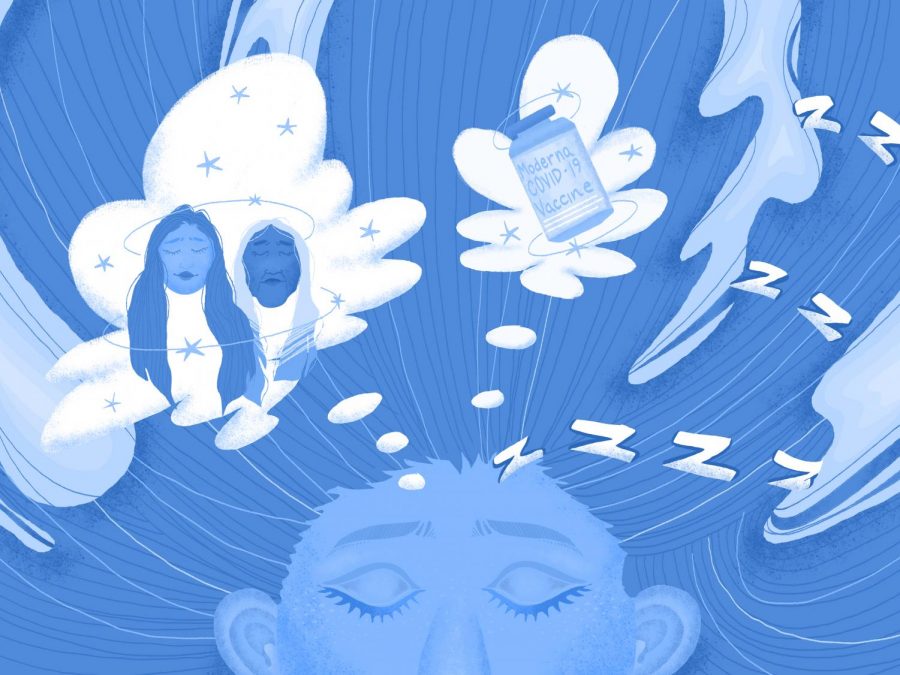UT-Austin students talk seeing loved ones after being fully vaccinated against COVID-19
March 26, 2021
As Bonnie Devany wrapped her grandmother in her arms for the first time in over a year, she said it felt like everything she dreamed it would be.
“I know my world is not going to be entirely back to normal,” UT law student Devany said. “But not being afraid to be around the people that I love — that is more important than anything to me.”
Because they are both vaccinated, Devany said that hug held the promise of time spent together free from the constant worry of spreading COVID-19.
Starting Monday, all Texas adults above the age of 16 will be eligible to receive the COVID-19 vaccine. After more than a year of sickness, distance and cancellations, some UT students like Devany have found hope for normalcy in the form of a vaccine.
“I think that as much as the community in Texas, Austin and UT have suffered together (during the pandemic), the vaccine distributions at UT have been us coming together to get through it,” Devany said. “There’s a light at the end of the tunnel.”
According to the Centers for Disease Control and Prevention, people who receive the vaccines can still contract COVID-19, but the infection will be less severe. The vaccine also provides a significant decrease in transmission and less risk that the virus will mutate into different strains, according to John Hopkins Medicine.
Kyle Kistner, physical culture and sports and Plan II freshman, said his sister is at a higher risk of contracting the virus, and the consequences of bringing COVID-19 home are much worse. Until Kistner gets the vaccine, he said he’s afraid of putting his family in danger when visiting them.
“I want to be able to go see them without having to worry … every time I go home,” Kistner said. “But seeing them, it could just be so stressful because the knowledge that I might have it, the test could have been a false negative. So I’m still worrying.”
As of Tuesday, only 22% of the Texas population has received their first dose of the vaccine.
Biology sophomore Kanika Kappalayil received the second dose of the Moderna vaccine on Jan. 30, but feels her life hasn’t changed as drastically as she hoped.
“Since not that many other people have gotten the vaccine, it hasn’t really affected my day to day life,” Kappalayil said. “I just go about still practicing COVID safety, social distancing, wearing a mask.”
However, Kappalayil said she is glad she got the vaccine when she did because it allows her to contribute to the herd immunity of her community.
“I know there’s a lot of vulnerable populations out there,” Kappalayil said. “So I want to do my part to keep them safe.”
Herd immunity occurs when there is a significant decrease in the spread of a virus after 70% of a population receives the vaccine, said Jeffery Wagner, operations lead for the UT Medical Reserve Corps.
“When the majority of people are vaccinated, the risk of cross contamination, someone becoming a superspreader, is diminished because they’re coming up against people that have already been vaccinated,” Wagner said.
With Texas increasing its COVID-19 vaccine distribution, the light at the end of the tunnel is getting closer for UT students.
“Once it’s safe, and we’re ready to go, I want to be around as many of my friends in one place at the same time,” Devany said. “I’m an extrovert so (I’m) one of the people that struggles in a pandemic. Just seeing all my friends together is going to be amazing.”
Editor’s Note: This article first appeared in the March 26 issue of The Daily Texan.



